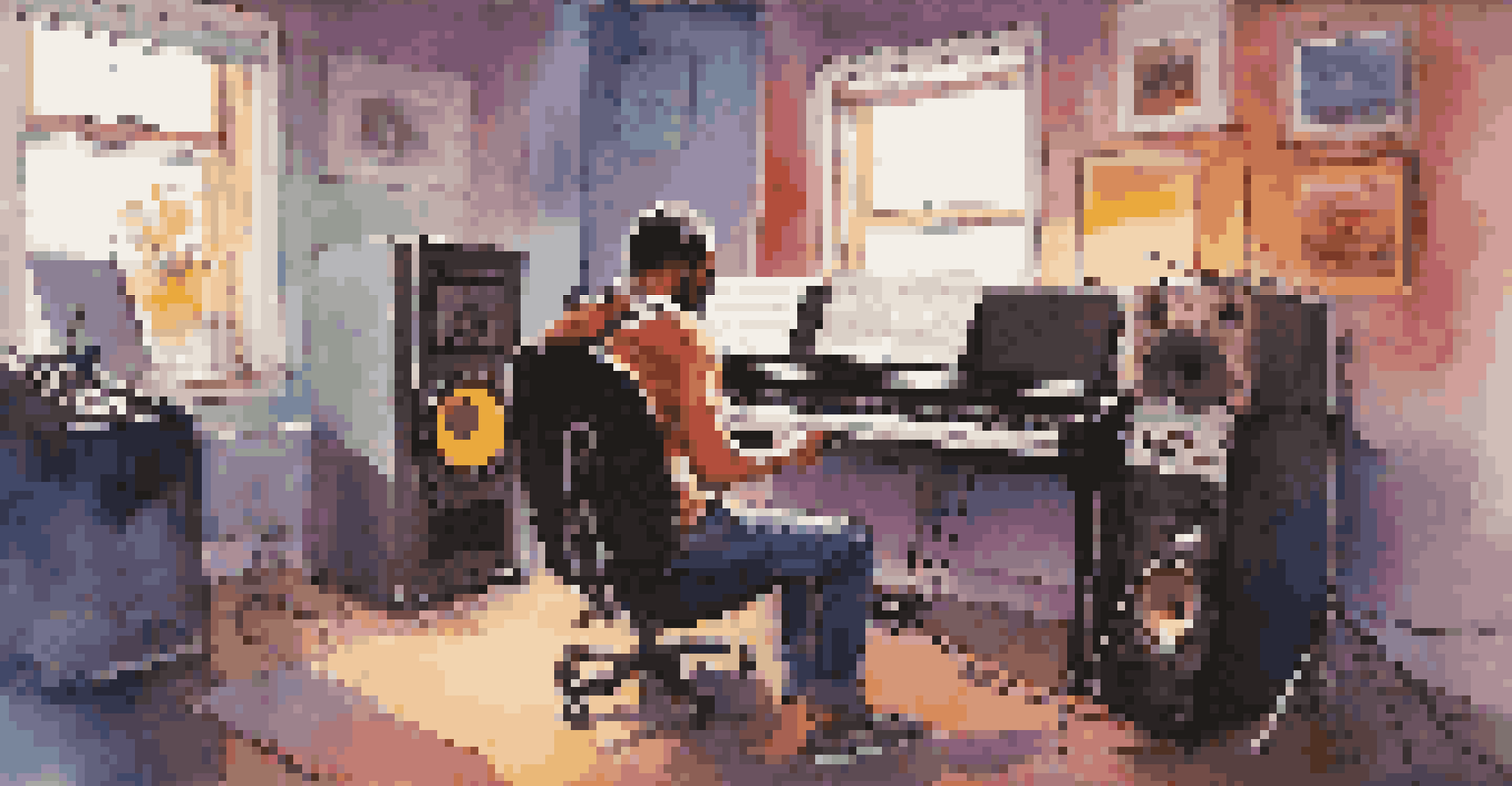The Role of Music Licensing Platforms in Today’s Industry

What Are Music Licensing Platforms and Their Purpose?
Music licensing platforms serve as intermediaries connecting creators with users who need music for various projects. Whether it’s for a film, advertisement, or a YouTube video, these platforms simplify the process of obtaining music rights.
Music is the shorthand of emotion.
These platforms typically host a vast library of tracks, making it easy for content creators to find suitable music that fits their needs. This is particularly beneficial for those who may not have the time or resources to negotiate licenses directly with artists or record labels.
By streamlining the licensing process, these platforms help ensure that artists get compensated fairly while allowing users to access high-quality music legally.
The Benefits of Using Music Licensing Platforms
One of the main advantages of music licensing platforms is the convenience they offer. Instead of navigating the often complex world of copyright law, users can find licensed music quickly and efficiently on one site.

Additionally, these platforms typically provide clear pricing structures, so users know exactly what they’ll pay upfront. This transparency helps avoid any hidden fees or unexpected costs down the line.
Music Platforms Connect Creators
Music licensing platforms serve as vital intermediaries, simplifying the process for creators to obtain music rights for various projects.
Moreover, many platforms allow users to preview tracks before purchasing, offering a risk-free way to ensure that the music aligns perfectly with their project’s vision.
Impact on Independent Artists and Musicians
For independent artists, music licensing platforms have opened new avenues for exposure and revenue. They can showcase their work to a broader audience without needing a major record label backing them.
The music industry is a tough business, but if you’re passionate about what you do, you can make it work.
These platforms empower artists to retain more control over their music while ensuring they are compensated fairly for its use. This shift is particularly crucial in an industry where traditional revenue streams have diminished.
As a result, many indie musicians are finding success by licensing their tracks, tapping into the growing demand for original music in various media.
Challenges Faced by Music Licensing Platforms
Despite their benefits, music licensing platforms also face challenges in an ever-evolving industry. One primary concern is the saturation of the market, with more platforms emerging daily, leading to increased competition.
This competition can drive prices down, which might negatively impact artists who rely on fair compensation for their work. Balancing affordability for users while ensuring artists are paid adequately remains a delicate task.
Indie Artists Gain Exposure
These platforms empower independent artists to showcase their work and earn revenue without needing major label backing.
Additionally, some platforms struggle with maintaining a diverse catalog that appeals to various users, as this can limit their attractiveness to potential customers.
The Role of Technology in Music Licensing
Technology plays a crucial role in the functioning of music licensing platforms. Algorithms and artificial intelligence help categorize and recommend tracks based on user preferences and project needs, enhancing the user experience.
Furthermore, blockchain technology is emerging as a way to ensure transparency in royalty distribution, providing artists with more confidence that they will be compensated fairly.
These technological advancements not only streamline the licensing process but also create a more equitable environment for artists and users alike.
Future Trends in Music Licensing Platforms
As the music industry continues to evolve, so too will music licensing platforms. One significant trend is the increasing demand for personalized music experiences, where users seek tailored soundtracks for their projects.
Platforms may begin to incorporate more curated playlists and collaborations with artists to meet this demand. This could lead to a more collaborative approach between musicians and content creators.
Technology Enhances Licensing
Advancements in technology, including AI and blockchain, are streamlining the licensing process and ensuring fair compensation for artists.
Additionally, the rise of virtual reality and augmented reality content will likely drive new licensing opportunities, requiring platforms to adapt and provide music suited for these innovative formats.
How to Choose the Right Music Licensing Platform
Choosing the right music licensing platform can seem daunting, but it boils down to understanding your specific needs. Consider factors like the type of project you're working on and the kind of music that fits your vision.
It's also essential to review pricing structures and licensing terms carefully. Some platforms may offer subscription models, while others operate on a pay-per-use basis, so choose what aligns best with your budget.

Lastly, don't forget to explore user reviews and case studies, as these can provide valuable insights into the platform's reliability and the quality of its music library.
Conclusion: The Vital Role of Music Licensing Platforms
In today's fast-paced digital landscape, music licensing platforms play a vital role in connecting artists with creators. They not only simplify the licensing process but also empower independent musicians to thrive.
As the industry continues to evolve, these platforms will adapt, incorporating new technologies and trends to meet the needs of both artists and users.
Ultimately, understanding and leveraging these platforms can lead to more creative collaborations and ensure that everyone involved in the music-making process is fairly compensated.